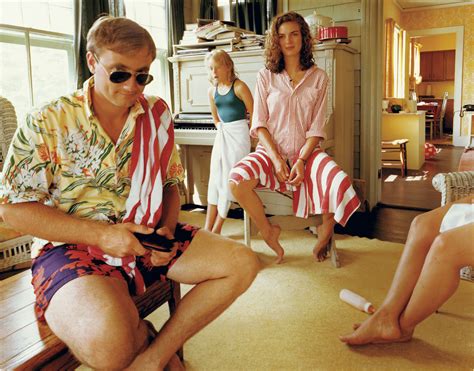Top 18 Quotes & Sayings by Tina Barney
Explore popular quotes and sayings by an American artist Tina Barney.
Last updated on December 21, 2024.
Can you see the deaths, divorces, job losses or changes, disappointments, surprises, and successes on people's faces? Have they been happy, sad, disillusioned, or gratified? I have been trying the single, vertically shot portrait with my 8 x 10 since 1985 and never felt I succeeded in finding what I was looking for.
I never thought that my work was going to become well-known. It started happening slowly, without my realizing it. But when I did, it was terrifying. I still can't believe that people let me photograph them. The trust is amazing. But I've always put them in a context that is dignified, and that's really important.
























